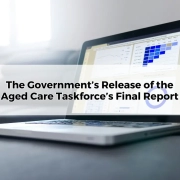How to Keep Aged Care Costs Manageable
Table of Contents
ToggleAged care expenses can be a significant financial burden, requiring careful planning to ensure affordability. Costs vary based on factors such as accommodation, daily care fees, and additional services. Understanding these components helps in making informed financial decisions. Government regulations and means testing further influence expenses, making it essential to have a comprehensive financial strategy in place.
Government Assistance and Subsidies
The Australian Government offers financial support through programs such as the Aged Care Means Test and Home Care Packages. These subsidies help reduce out-of-pocket expenses for eligible individuals. Knowing how to navigate these options ensures that individuals receive maximum benefits while minimising personal financial strain. Understanding eligibility criteria and the application process can significantly impact affordability.
Assessing the Best Care Option for Your Needs
Choosing between home care and residential aged care depends on financial resources and personal preferences. Home care may be more cost-effective, especially when government subsidies are utilised. Conversely, residential aged care provides comprehensive services but comes with higher associated fees. Evaluating these options ensures financial sustainability while maintaining quality of life.
Managing Accommodation Costs
Accommodation costs vary depending on the chosen facility and payment structure. Residents may pay a Refundable Accommodation Deposit (RAD), a Daily Accommodation Payment (DAP), or a combination of both. Understanding these payment options and negotiating terms with providers can result in significant savings. Seeking financial advice before making a commitment is crucial to ensuring long-term affordability.
Planning for Daily Care Fees
Daily care fees cover essential services, including meals, cleaning, and medical support. These fees are determined based on income and assets, making proactive financial planning essential. Setting aside dedicated funds or leveraging financial products such as annuities can help manage ongoing costs effectively. Keeping track of fee changes and reassessing financial strategies periodically can prevent unexpected financial strain.
Avoiding Hidden and Additional Charges
Aged care facilities may charge for extra services such as premium meal options, specialised therapies, and entertainment. While these services enhance quality of life, they can also lead to financial strain if not planned for. Understanding the fee structure of chosen providers and assessing the necessity of optional services can help keep costs manageable.
Smart Financial Planning for Aged Care
A proactive approach to financial planning ensures that aged care remains affordable. Strategies such as structuring assets effectively, minimising assessable income, and optimising cash flow can significantly impact affordability. Seeking advice from a financial adviser with expertise in aged care can help create a sustainable financial plan.
The Role of Superannuation in Covering Aged Care Costs
Superannuation can play a crucial role in funding aged care, particularly when structured appropriately. Understanding withdrawal options, tax implications, and pension eligibility ensures that superannuation funds are maximised. Utilising strategies such as account-based pensions can provide a steady income stream to cover aged care expenses.
Centrelink Benefits and Pension Considerations
Centrelink benefits, including the Age Pension, can contribute to aged care affordability. Maximising pension entitlements through strategic asset management and income planning can help reduce means-tested fees. Regular reviews of pension eligibility and entitlements can ensure individuals receive the maximum financial support available.
Downsizing to Fund Aged Care
Selling the family home or downsizing to a smaller property can free up funds for aged care costs. However, implications such as capital gains tax, pension eligibility, and future accommodation needs should be considered. Careful financial analysis ensures that downsizing aligns with long-term financial stability.
Estate Planning and Future Financial Security
Estate planning plays a vital role in ensuring financial security during aged care. Setting up enduring powers of attorney, reviewing wills, and establishing financial structures can safeguard assets and ensure a seamless transition of wealth. Planning ahead can prevent unnecessary legal complications and financial stress.
Seeking Professional Financial Advice
Aged care financial planning is complex, requiring expert knowledge to optimise outcomes. Consulting a financial adviser with experience in aged care ensures that individuals and families make informed decisions. Professional guidance can help navigate regulations, optimise financial structures, and secure a financially sustainable aged care plan.









